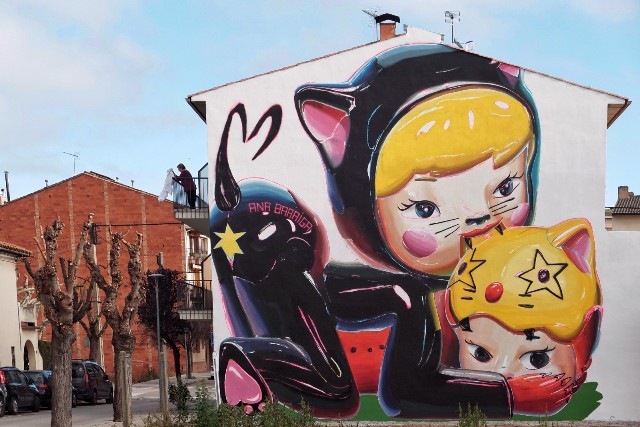
Between October and November 2022, Barcelona based artistic center B-Murals curated and produced Osona Artimur Festival, a never been done initiative of the Department of Tourism of Osona (an idyllic region up north BCN full of rivers, mountains and beautiful landscapes), in collaboration with the Catalan company Transit Projectes.
19 well renowned artists from the international muralism scene, the Spanish contemporary art world and some local guns selected through open calls and participatory processes, intervened the streets and the public space of 5 different villages – Prats de Lluçanès, Manlleu, Sant Julià de Vilatorta, Sant Bartomeu del Grau and Alpens, supported by an extensive production team which included assistants, runners, photographers and filmers.
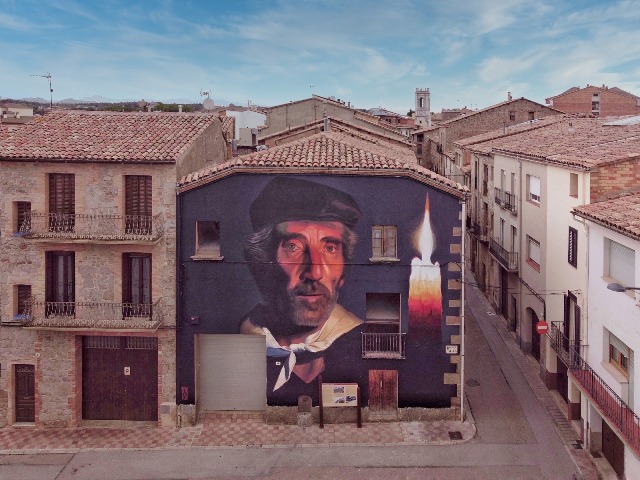
Wedo Goas. Prats de Lluçanès. Photo Fer Alcalá
Osona Artimur: when urban art takes place in a rural context
This unprecedented project for B-Murals generates several questions around street art and the context of its own development. For instance, can small towns be an ideal scenario for urban art?
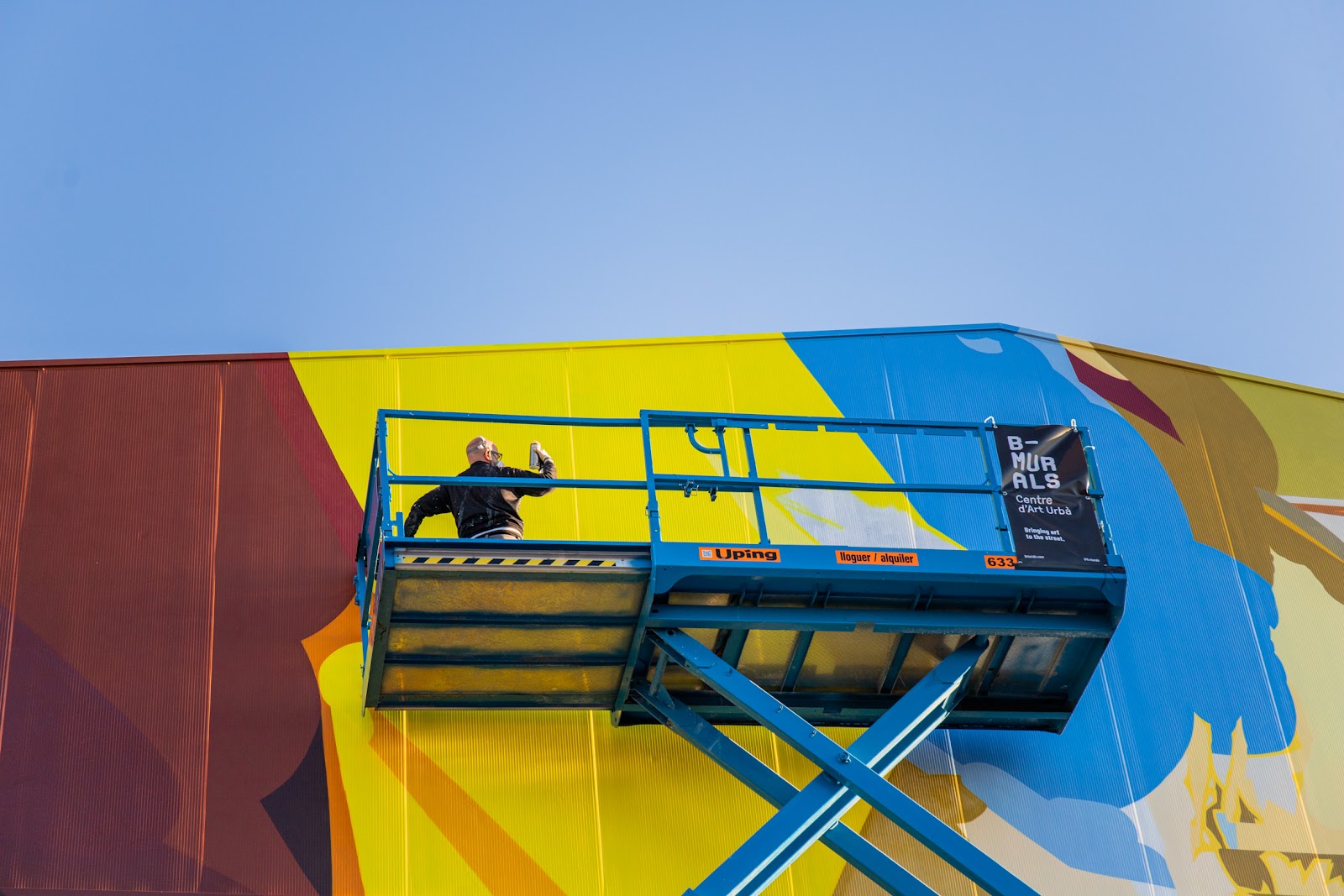
Satone. Sant Bartomeu del Grau. Photo Monika Pufflerova
The fact is that looking for walls outside the big cities can be an alternative solution for artists and cultural managers due to the difficulties that can be found downtown Barcelona. The rules about architectural aesthetics, the shortage of legal walls and the strong rivalry make managing big events of this nature a very hard task to do.
Same way that some of the interventions beautify its surroundings and easily catch the eye of the visitors (the walls of Wedo Goas, Jan Vallverdú,
Luogo Comune, Alberto Montes, Marta Lapeña, Twee Muizen, Eloise Gillow…) the 1st edition of the festival showed us that muralism can generate discussions about the roles of tradition and art in rural areas.
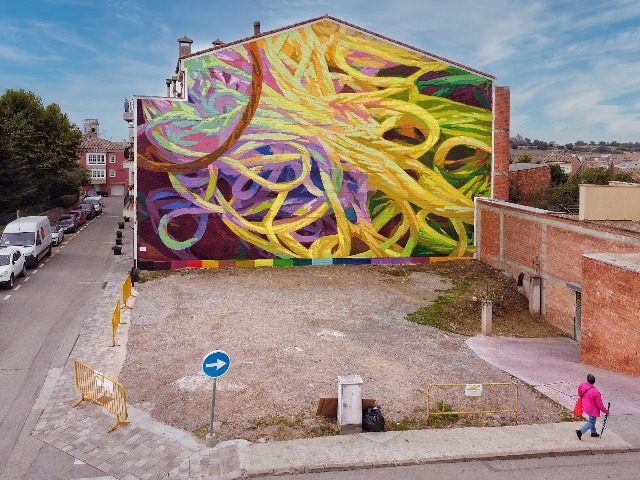
Zoer. Prats de Lluçanès. Photo Fer Alcalá
For example, the controversial work of Ana Barriga at Sant Julià opened a big argument about the place for contemporary art in a countryside context, but also the considerations about gender issues and folklore showcased by Mateu Targa’s wall, the horse culture represented by Sergi Bastida’s piece and the deep thoughts about the actual human being condition that can be found in Isaac Cordal’s figures.
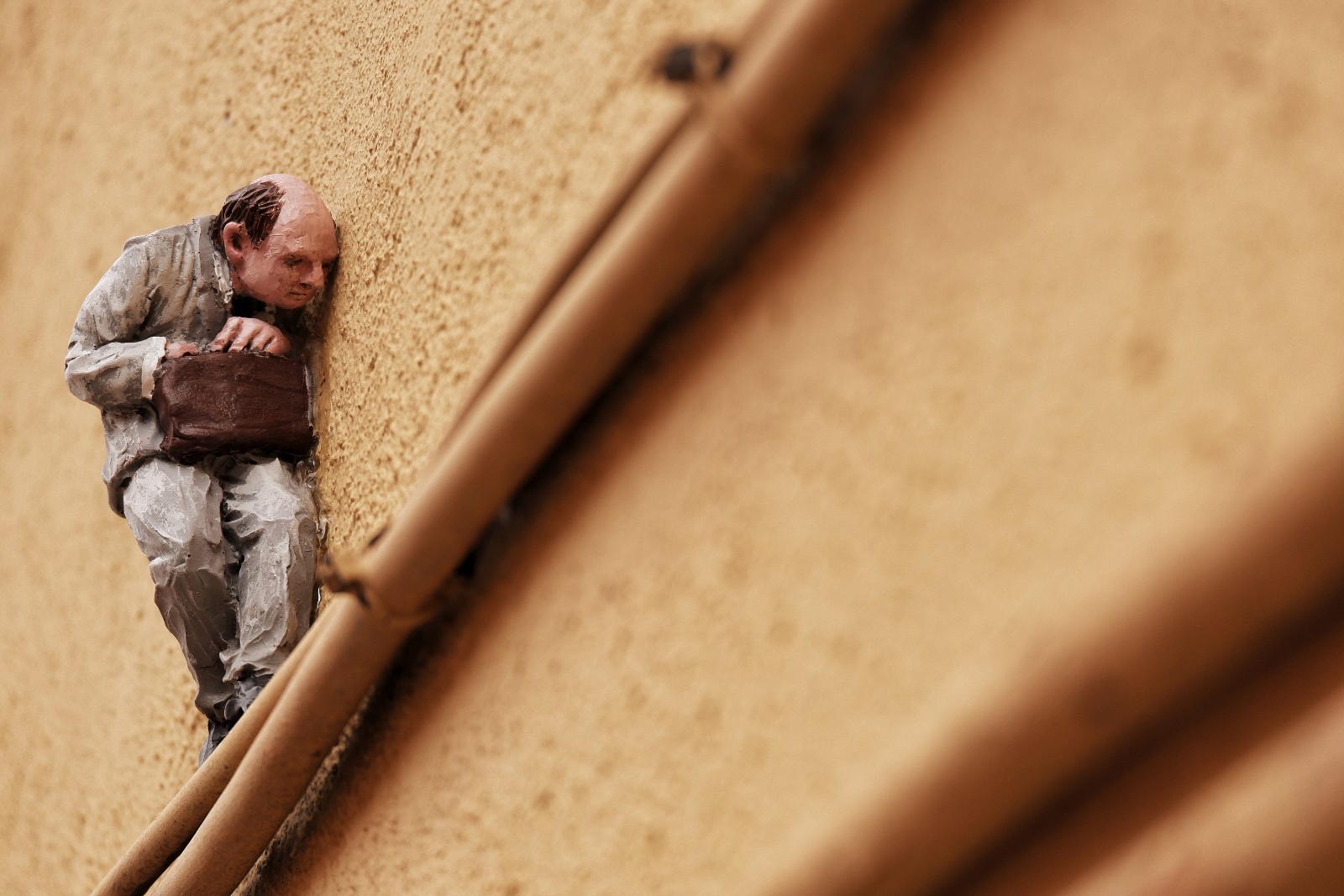
Isaac Cordal. Sant Bartomeu del Grau. Photo Fer Alcalá
Participatory processes are tools for making different profiles of population more visible, as it happens with the work of Daniel Muñoz, created in collaboration with the local mental health collective Osonament. Besides that, the proposals of Chu Doma, Zosen and Alessia Innocenti, done with several students, allow to find new paths of exploring art, claiming its power as a way of self expression and educate new audiences.
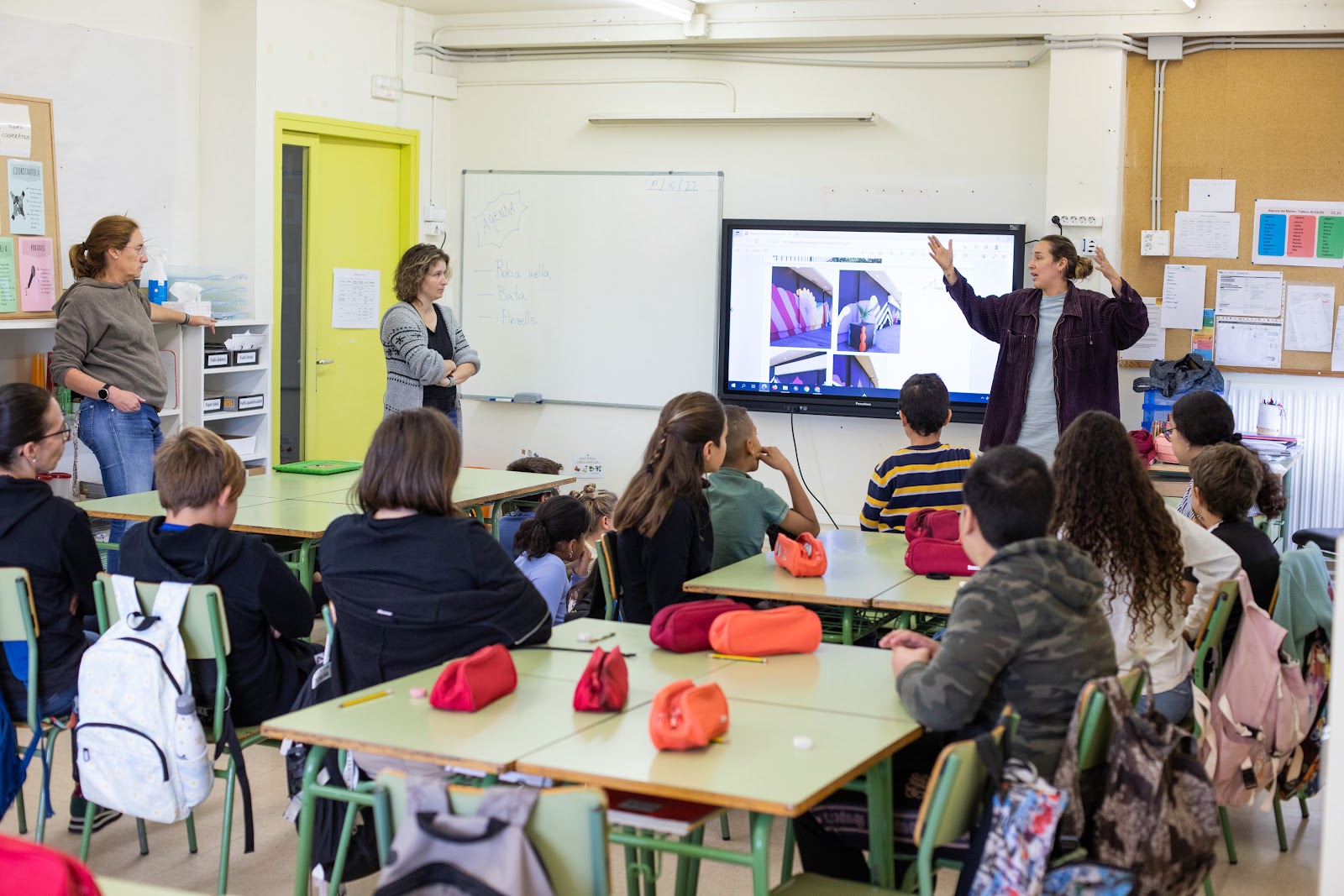
Participatory process with Alessia Innocenti. Sant Bartomeu del Grau. Photo Monika Pufflerova
On the other hand, contemporary and abstract pieces shutter the traditional aesthetical criteria, looking for new portraits of local identities, as the murals of Zoer, Satone, Ana Barriga, Rosh and Nano4814 display. Additionally, rural contexts become new places for researching, innovation and promoting art.
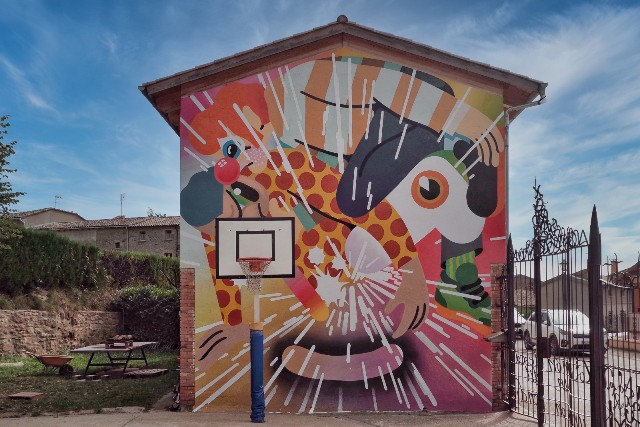
Nano4814. Alpens. Photo Fer Alcalá
Finally, it’s fair to say that Osona Artimur festival brings new horizons to art in the countryside of Catalunya and these five pioneer villages of Prats de Lluçanès, Manlleu, Sant Julià de Vilatorta, Sant Bartomeu del Grau and Alpens go one step beyond for leading the way.
Invited artists: Zoer, Ana Barriga, Satone, Nano4814, Luogo Comune, Isaac Cordal, Rosh, Alberto Montes, Jan Vallverdú, Marta Lapeña, Eloise Gillow
Artists selected by open call: Twee Muizen, Sergi Bastida, Wedo Goas
Artists working on participatory processes: Daniel Muñoz, Chu Doma, Alessia Innocenti, Mateu Targa, Zosen
Photography by: Monika Pufflerova & Fer Alcalá
For further information:
B-Murals:
Instagram: https://www.instagram.com/b.murals/
Email: comunicacio@bmurals.com
Osona Artimur:
You may consider a modest donation — however much you can afford, when it comes from the heart, it’s the kind of gesture that makes us warm with appreciation.
leave your comment